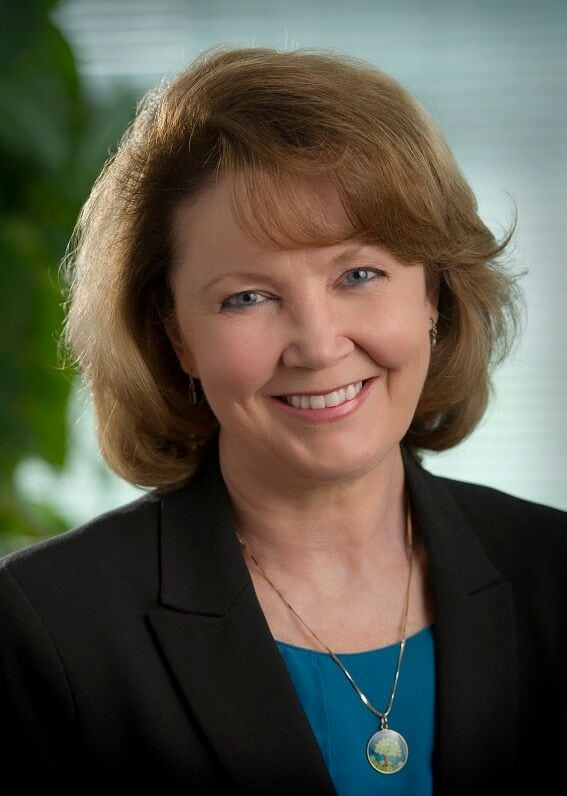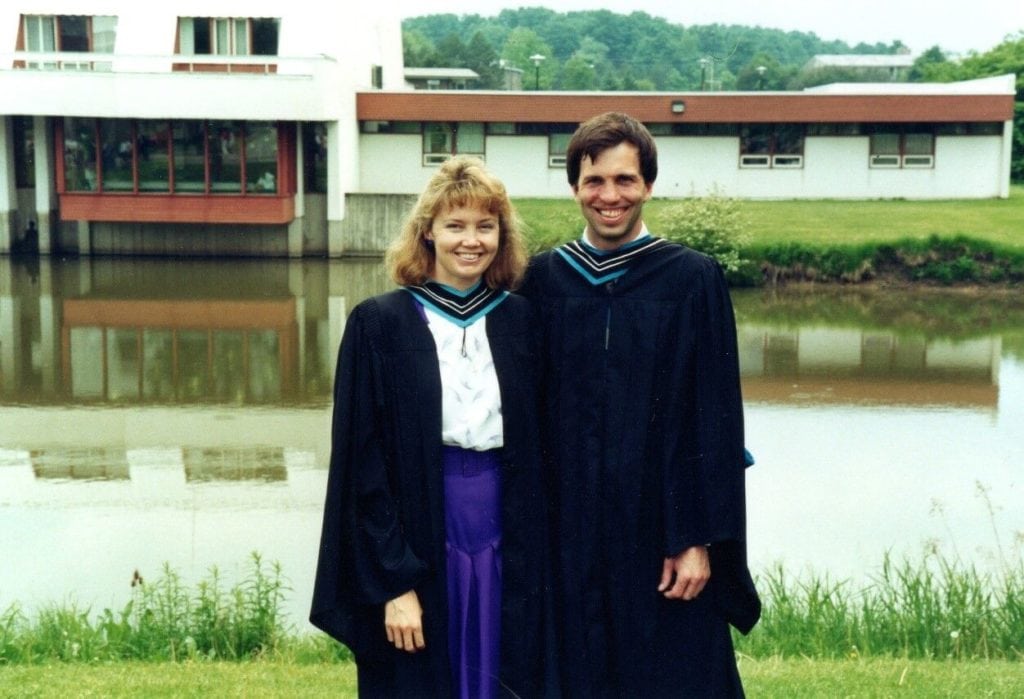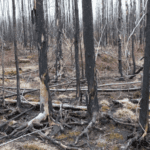At 55 years of age, Bernadette Conant frequently tells people, “I still don’t know what I want to be when I grow up.”

It’s the same feeling she’s had since high school. “Like many teenagers, I didn’t really know what I wanted to pursue either in university or in life,” she says. “I was interested in concrete, tangible topics like biology, chemistry, and geology, and found math, physics, and English too theoretical. I figured I’d likely have a career in biology, agriculture, medicine, or geology.”
Conant took a year off between high school and university—something she recommends to all students. “I learned a lot in that year—lessons that I still use in the leadership aspects of my job. I was more mature when I started university.”
Once at the University of Waterloo, Conant enrolled in the co-op program. Her jobs included working as a research assistant for a quaternary geology professor, doing fieldwork in northern Ontario for a gold mining company, and two work terms in Calgary’s oil patch. At the time, she wasn’t into anything specifically water related.
After finishing a BSc in Earth Sciences in the spring of 1986, Conant lost a job offer in Calgary due to the economic downturn, which turned out to be a blessing in disguise. “I ended up working for the water well inspector at the Ontario Ministry of Environment instead,” she says. “It required a lot of driving around trying to figure out where private wells were located relative to what we had in our records.” This was Conant’s first foray into water work.
Conant then went on to work at Golder Associates. “I worked on a variety of water-related topics, which really got me into the water world,” she says. “I decided that if I was going to do it for real, I should go back to school for an MSc.”
Conant returned to Waterloo to complete an MSc (1991) focused on solvents in groundwater. “I got a lot of exposure not just to research, but to what industry wanted to do with that research,” says Conant. She credits this approach with how her professional life has evolved: the drive and ability to bring relevant research together with practical decision-making. “I think that’s always been the driver for me, and water became the topic through which I could apply that drive.”

Bernadette and Brewster at their MSc graduation ceremony at the University of Waterloo
In 1991, Conant and her husband, Brewster, moved to his hometown in Massachusetts. Bernadette worked for the consulting firm Environmental Project Control, where she wrote third-party reviews of technical reports on contaminated site conditions or clean ups and reviewed and provided expert testimony on site remediation issues. “I spent a lot of time figuring out how our study reviews and expert testimony could be more defensible,” she says. “I also learned from a lawyer how to write for a non-academic audience, as she taught me the ‘upside-down’ method of communication, where you start with your conclusions and then provide your rationale for those conclusions.”
When the pair returned to Waterloo with their first child, Brewster completed a PhD while Bernadette continued as a consultant, including managing the Solvents in Groundwater Consortium. The couple also had two more kids.
Conant joined the Canadian Water Network (CWN) in 2003 as their Executive Director. As a Network Centre of Excellence (NCE), CWN was funded by the Canadian government from 2001–2017 to ensure the safety, security, and abundance of Canada’s drinking water. In those 16 years, CWN-funded research led to “over 100 policy and practice changes; hundreds of millions of dollars of deferred and avoided costs for municipalities, industry, and homeowners; improved water quality; and reduced risk to public health and infrastructure.” Post-NCE, CWN has evolved into an ongoing national not-for-profit that works with a variety of water management sectors across Canada to provide needed insights for their decision-making.
Now the CEO of CWN, Conant describes herself as a “proud generalist” who can connect with people across research fields rather than being confined by in-depth knowledge of a single field. She feels this is an ideal trait for someone whose job it is to connect researchers and their results with end-users in government, industry, and NGOs and to make sure that water research results in on-the-ground solutions for water policy. As Conant says, “all of my work has been about better connecting relevant, cutting-edge research and knowledge to policy, practice, and decision-making.”
It wasn’t always this way, however. “Initially, the fact that I didn’t have a PhD was limiting,” says Conant. “For example, I wasn’t accepted or seen as a credible ‘science leader’ despite my time in the academic world. I was seen more as administrative staff who ‘happened’ to understand some of the science.”
When asked if she wishes she’d done a PhD, however, Conant remains undecided. She explains that her MSc was quite rigorous, and she’d had the option to put in another year plus a few more courses and call it a PhD. At the time, she was too principled to fast-track, though in hindsight she thinks she likely should have done it. In the end, Conant feels that while having a PhD can certainly be a useful pathway, the typical post-PhD academic route necessarily focuses on specialization and is thus not the best preparation for someone looking to be a generalist.




